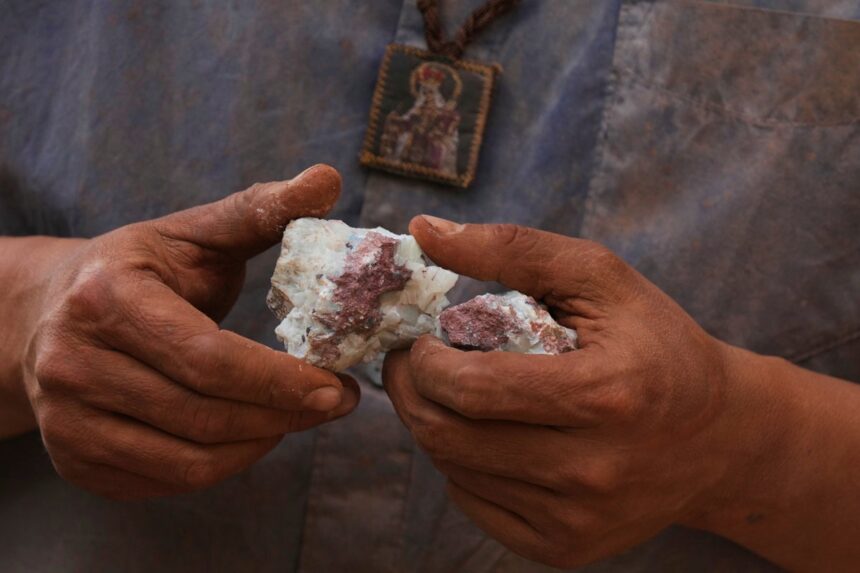In the Sierra Gorda mountains of Mexico, a surge in mercury mining is creating a complex, dangerous landscape for local miners. Driven by soaring international gold prices, mercury—a toxic metal essential for illegal gold extraction—is in high demand. This influx of interest is propelling miners like Hugo Flores deeper into hazardous tunnels, where they unearth mercury from cinnabar deposits.
As the price of mercury has skyrocketed, reaching up to $350 per kilogram, many local miners are facing a stark choice: risk exposure to toxic materials or seek migration opportunities, often to the U.S. Flores reflects on the hard choices his family faced in the past and notes a growing number of young men returning from the U.S. to work in the mines. “We’re forgotten by the Mexican government,” he laments.
Conditions in towns like San Joaquin are dire; nearly half of the 8,000 residents live in poverty. The mercury boom has provided economic opportunities but at grave health risks. Medical experts warn of severe mercury poisoning among miners and their families, with symptoms ranging from neurological decline to tremors. The harmful effects extend beyond the mines, contaminating the environment and endangering local wildlife in one of Mexico’s most biodiverse regions.
Mercury mining has a long history in this area, once legally used in various products until recent global bans. Currently, much of the mercury mined in Mexico is trafficked to South America, where it is instrumental in illegal gold mining operations that further taint vital river systems.
As international efforts to ban mercury mining are underway, critics argue that these measures only intensify the illegal market, forcing miners into a precarious position. The U.N. has attempted to establish a framework to support miners in transitioning away from this work, but local miners report little to no support has been provided. The absence of viable alternatives to mercury mining has left workers trapped in a cycle of poverty and health risks, dependent on the dangerously fluctuating prices of the toxic metal.
Moreover, there are rising concerns regarding the involvement of organized crime in the mercury trade, as cartels begin to invade what was once a relatively peaceful community. Miners fear that if the government shuts down these operations in its pursuit of legal conformity and environmental safety, they will be left vulnerable to exploitation from criminal groups seeking to control the lucrative black market.
As the global demand for gold continues to incentivize mercury mining, those trapped in the industry face an uncertain future, balancing their immediate economic needs against long-term health repercussions and environmental degradation. In this volatile landscape, the human cost remains alarmingly high.







